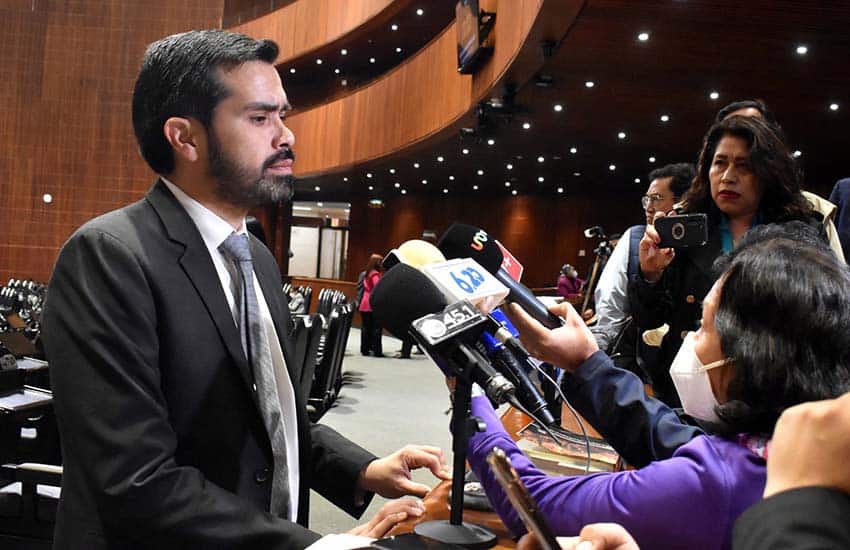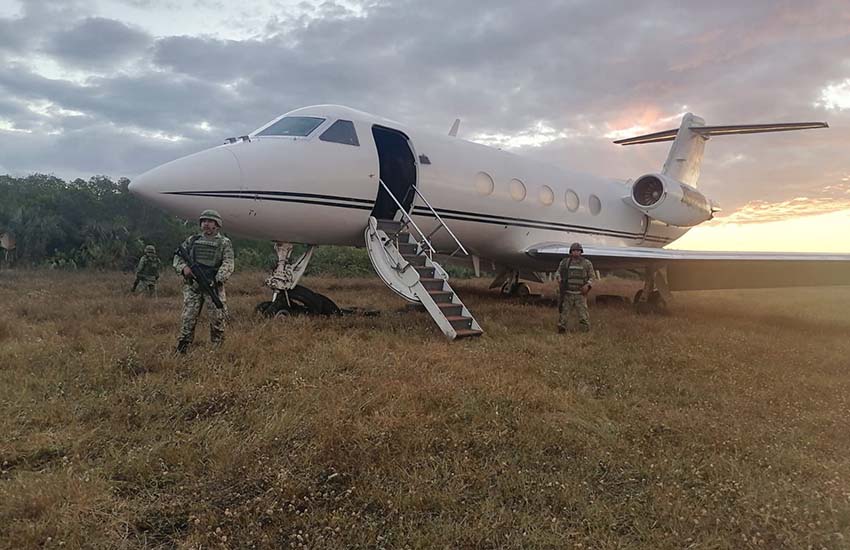The Chamber of Deputies voted Wednesday to approve a law that will give Mexico’s armed forces control over Mexican airspace.
The Mexican Airspace Protection Law authorizes the Defense Ministry (Sedena) to oversee air traffic monitoring and to use its resources to “deter threats that violate national security in airspace.”
Specifically, the bill proposes an Airspace Monitoring and Protection Center which will draw personnel from six federal agencies – Sedena; the Navy; the Infrastructure, Communications and Transport Ministry (SICT); the Security Ministry; the Finance Ministry; and the Interior Ministry — coordinated by the Sedena.
This center will monitor unusual aircraft activity often associated with organized crime, including turning off transponder codes, unexplained route changes and failure to communicate with air traffic control services. Suspicious aircraft may then be intercepted by Sedena.
The new system was proposed by President López Obrador under the argument that there is currently a legal vacuum regarding the protection of airspace.
Morena federal Deputy Amairany Peña said that the law will “combat drug trafficking, arms and wildlife trafficking, human trafficking, terrorism and other transnational crimes of high social impact.”

Defense Commission Chairman Ricardo Villarreal of the National Action Party (PAN) stressed that a security alert is reported on average every 36 hours for aerial activity associated with organized crime. Between December 2018 and November 2021, there were 720 notices for suspicious aircraft to be monitored or intercepted.
Villarreal acknowledged that, although Sedena already participates in intercepting aircraft, the current legal framework makes it difficult to prosecute the crew or owners.
The Chamber of Deputies approved the law with 263 votes in favor, 26 against and 195 abstentions.
The vote was split broadly on party lines, with Morena and its allies voting in favor, the Va por México coalition of the PRI, PAN and PRD abstaining and the Citizen Movement (MC) voting against.
Explaining her party’s opposition, MC deputy coordinator Mirza Flores Gómez said, “What this ruling really seeks is to advance the consolidation of the militarization of our country.”
The MC argued in a dissenting motion that many of the issues raised in the proposed legislation are already addressed by the Civil Aviation Law.

“In this sense, there is no relationship between the problems indicated and the need to create a law that militarizes airspace and civil aviation,” said the motion.
The MC has consistently opposed moves by AMLO that increase the power of the military, such as the recent reform that extends Sedena’s authority over the National Guard.
The bill will now progress to the Senate, where it will be debated in the coming days.
With reports from La Jornada and Animal Político
